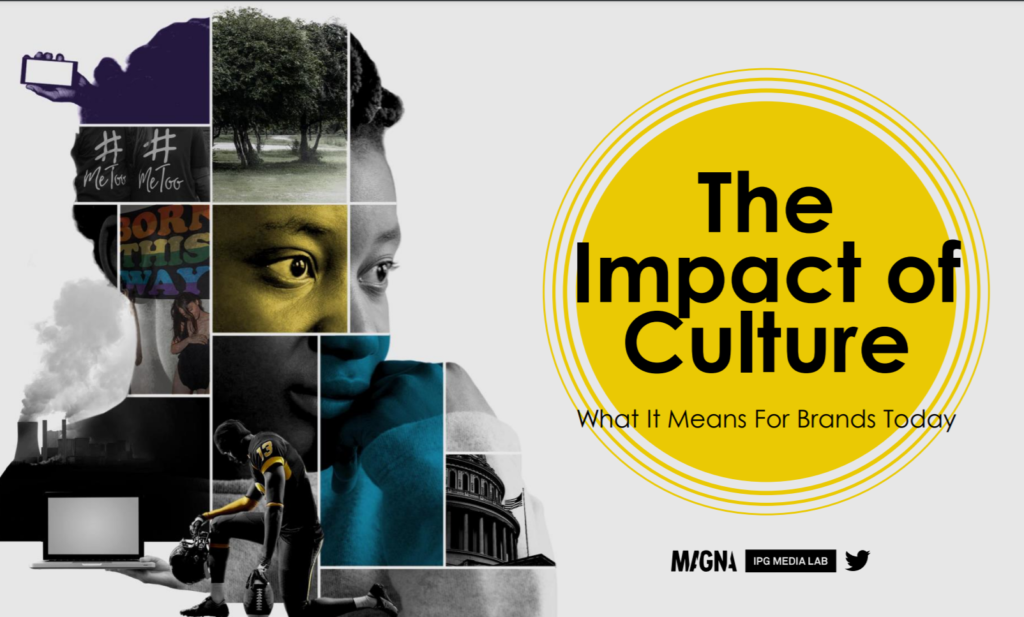A guest post by Megan Hudson who writes about the intersection of marketing and pop culture
“Pop culture is not about depth. It’s about marketing, supply, and demand, consumerism.” – Trevor Dunn
Pop culture is no longer a niche influence relegated to concerts, conventions, and social media conversations. In today’s increasingly interconnected world, pop culture has permeated everything we do and see. From the social media channels we follow to the fashion, food, and humor trends we gravitate towards.
28% of the world’s most successful enterprises like Coca-Cola, Burger King, and Nike have featured pop culture references somewhere in their marketing campaigns. Even sports teams have referred to The Office, Game of Thrones, and Friends to connect with their supporters.
Pop culture’s widespread popularity has created a unique advantage for smaller brands looking to boost their relevance. A growing number of businesses and brands are now using pop references to engage their customers and keep their attention amid a sea of ever-changing trends and demands.
Cultural Relevance and Capturing Consumer Attention
The link between cultural relevance and keeping consumer attention has been thoroughly studied. Research from Magna/IPG and Twitter has suggested that brands need to remain culturally relevant if they want to attract their target markets’ attention. This is true for brands who are targeting younger generations of consumers, like Millennials and Generation Zers.
The study mentioned above revealed that 44% of customers made purchase decisions based on a brand’s price and quality, and 31% made these decisions based on brands’ reputations. However, 25% made their purchase choices based on a brand’s ‘cultural involvement.’ Essentially, this means that a quarter of the consumers surveyed were willing to buy from brands that incorporated pop culture into their marketing strategies.
“Your culture is your brand.” – The late Tony Hsieh
What Today’s Consumers Want
Cultural relevance can be a powerful tool for brands looking to form lasting connections with their customers. But there’s more to it than simply brainstorming ideas to make your brand seem ‘with it.’ Customers are looking for more than just pop-up ads and digital marketing campaigns based on the latest memes or slang.
The Magna/Twitter/IPG study discovered that nearly half of its respondents considered social issues and movements necessary. Another 38% of respondents believe that brands’ involvement in these issues and activities is essential or even crucial. The consumers who placed the most emphasis on supporting brands involved in these issues are in the 18-35 age group, and most of them are Twitter users as well.
These findings highlight the fact that brands need to focus on more than just sounding relevant. They need to get involved with relevant current issues as well. Businesses that genuinely want to show how well they know their customers need to consider their interests and personal values. The survey suggests that most consumers learn more about social issues like gender equality and fair trade than they do about pop culture.
Marketers thus need to consider a broad spectrum of topics when crafting engaging pop culture-centered advertising campaigns. These include:
- Trending topics on social media
- Popular content formats, like Instagram Stories and live streams
- Current social, environmental, and political issues
- The latest hit series, film, and music releases
- New buzzwords and memes
- Growing lifestyle trends like Meat Free Mondays.
Brands that can successfully incorporate these elements into their social responsibility campaigns and marketing efforts have much better chances of engaging modern consumers and positively making headlines.
“Brands and branding are the most significant gifts that commerce made to pop culture.” – Wally Ollins
Social Media Marketing Mastery
Social media is the backbone of any effective marketing campaign today. However, it’s essential to remember social media platforms require specialized marketing approaches. You can’t advertise on social media in the same way you would advertise on a billboard and expect to see favorable results.
Brands that take to social media need to adopt a colonial mindset to succeed.
The first step here is to create a brand identity that your audience will relate to and be willing to follow. Your brand’s personality should engage your followers, so it needs to be entertaining, relatable, and approachable. Pop culture references can help you to achieve the approachability that your brand needs to remain relevant in the digital space.
Another key to making your brand relatable to your customers is to use trending topics in your marketing campaigns. Participate in hot new topics, issues, and conversations, and your followers will be much more willing to join in discussion with you.
How Brands Benefit by Using Pop Culture
Using pop culture to your advantage offers many significant benefits for your brand. These include:
- Better content visibility. Brands with their finger on the pop culture pulse can create relevant and relatable content that attracts high web traffic levels.
- Stronger consumer connections. Customers will always gravitate towards brands that they feel they have something in common with. You can use pop culture references to make your brand relatable and foster lasting connections with your followers, which will enhance brand loyalty.
- Motivation to understand your customer base. No brand can engage its audience or weigh in on trending topics without knowing its customer base well. Harnessing pop culture as a relevance-boosting tool will motivate you to gather as much data as you can about your customers’ preferences, topics of interest, lifestyles, and more.
- A more approachable brand. Gone are the days when consumers were willing to tolerate robotic brands that focused on nothing but their profit margins. Pop culture references will make your brand appear more human and approachable to customers, giving it a personality that they can identify with and trust. Here are some fun examples of promotional products that can leverage pop-cultural imagery like Tesla shorts, Dunkin’ joggers, KFB crocs, McDonald’s chicken nugget pillows, and Stouffer’s Mac & Cheese Sweatsuit.
- More soft sells. Social engagement provides perfect opportunities to introduce weak sales into your marketing strategy while still appearing relatable and authentic to your audience.
The Bottom Line
Brands looking to expand and boost their relevance can no longer deny the value of pop culture.
Cultural relevance is the key to connecting with your customers, building an approachable brand identity, and fostering lasting brand loyalty.
You can give your brand a relevance boost by focusing on dynamic marketing, referring to popular culture and nostalgia, and tailoring your approach according to your target market’s unique interests.
Need help making your marketing strategy pop?
I can help. You can set up a time to chat with me about your marketing challenges using my calendar. Email me jeffslater@themarketingsage.com Call me. 919 720 0995. The conversation is free, and we can explore if working together makes sense. Watch a short video about working with me.

Megan Hudson is a content champion for various online publications, often covering a range of business topics from finance for startups to small business accounting tips.
Photo by Clark Van Der Beken on Unsplash






